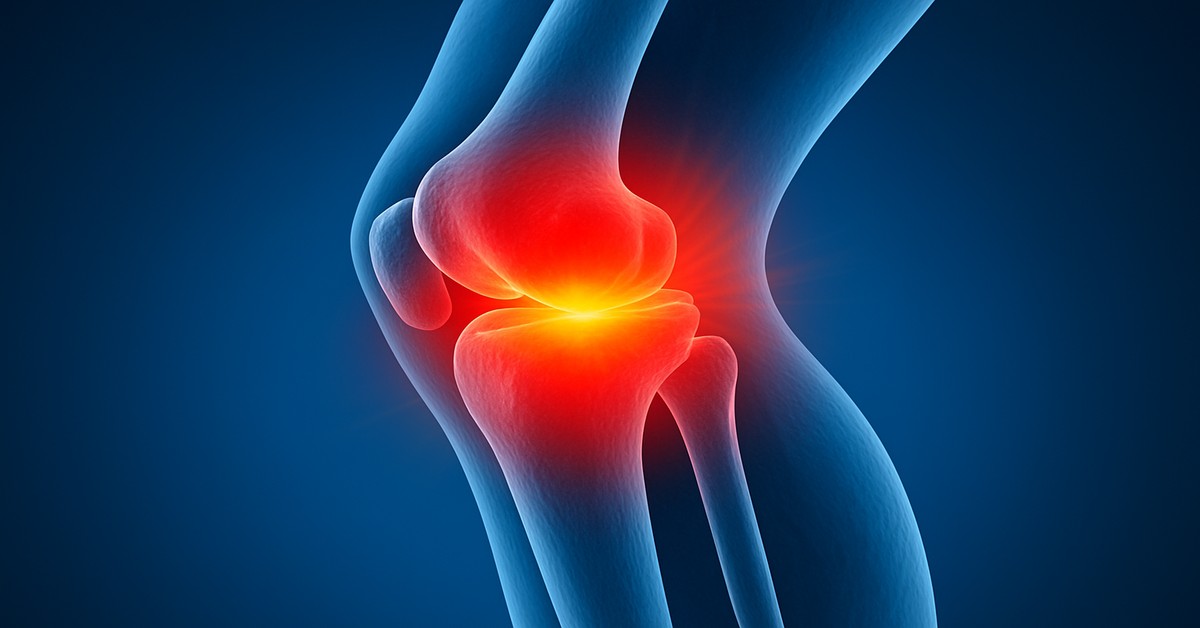
Best Natural Supplements to Reduce Inflammation in the Joints

If your joints are stiff, swollen, or just plain ache for no obvious reason, you’re not alone. Joint inflammation is one of the most common complaints as we age, and it's not just for people with arthritis. Whether you’re dealing with nagging knee pain or recovering from years of high-impact activity, natural supplements may offer real relief, without the side effects of long-term painkillers. Let’s explore the best natural compounds that science (and tradition) say can calm inflammation and support healthy joints.
What Causes Joint Inflammation?
Joint inflammation is your body’s immune response in overdrive. It’s triggered by things like aging cartilage, autoimmune conditions, overuse, or even your diet. At the cellular level, inflammatory messengers called cytokines ramp up and begin breaking down joint tissue. Enzymes like COX-2 and 5-LOX also contribute to swelling and pain. The longer this inflammatory cycle continues, the more damage is done. That’s where targeted natural support can make a difference by interrupting this destructive loop and promoting repair instead.
Best Natural Supplements to Reduce Joint Inflammation
1. Turmeric / Curcumin
Let’s start with the star of the show. Curcumin, the active compound in turmeric, is one of the most studied natural anti-inflammatories out there. It works by blocking inflammatory molecules like NF-κB and COX-2, the same target as NSAIDs, but without gut damage. Studies show curcumin can significantly reduce joint pain and stiffness, especially when combined with black pepper extract (piperine) to boost absorption. If you want to go natural without sacrificing results, this is where you start.
2. Boswellia Serrata
Often called Indian frankincense, boswellia is a powerful herb that targets inflammation differently than turmeric. It blocks the 5-LOX enzyme, reducing leukotrienes that drive joint damage. Clinical trials have shown that boswellia can reduce pain and improve function in people with osteoarthritis, often within a few weeks. It’s especially effective when taken with curcumin for a one-two punch against chronic inflammation.
3. Omega-3 Fatty Acids
You’ve heard about omega-3s for heart health, but they’re just as important for your joints. EPA and DHA (from fish oil or algae) reduce production of inflammatory prostaglandins and cytokines. They also help lubricate joints and protect cartilage from degradation. Multiple studies show that omega-3 supplementation can reduce joint pain and stiffness in people with rheumatoid arthritis and other inflammatory joint conditions. Aim for high-quality triglyceride-form fish oil for best absorption.
4. Ginger Extract
Don’t underestimate this spicy root. Ginger contains compounds like gingerol that act similarly to NSAIDs, helping reduce pain and inflammation. In some studies, ginger has performed nearly as well as ibuprofen in easing joint discomfort, without irritating your stomach. It’s particularly helpful for people with mild to moderate joint pain who want gentle daily relief.
5. MSM (Methylsulfonylmethane)
MSM is a sulfur-rich compound that supports joint structure and fights inflammation at the same time. It works by reducing oxidative stress and downregulating inflammatory markers. MSM has been shown to improve joint pain, swelling, and flexibility, especially in people with osteoarthritis. It also plays well with glucosamine and chondroitin in joint support formulas.
6. Glucosamine & Chondroitin
These two are joint health classics, and for good reason. They help rebuild cartilage and may reduce low-grade inflammation in the joints. While results can be mixed, many people experience less pain and better movement after a few months of consistent use. Look for the sulfate forms of glucosamine and chondroitin for the most evidence-backed results.
7. Resveratrol
Found in red grapes and Japanese knotweed, resveratrol is an antioxidant that also modulates inflammatory pathways. It inhibits NF-κB and may protect cartilage cells from oxidative damage. Though more often associated with anti-aging and cardiovascular benefits, resveratrol shows promise for reducing joint inflammation in experimental studies.
8. Quercetin
This flavonoid found in apples, onions, and berries packs a serious anti-inflammatory punch. Quercetin helps inhibit histamine and inflammatory enzymes like COX-2. Studies suggest it can be helpful for both allergy-related inflammation and joint swelling. It’s especially good for people with systemic inflammatory issues or autoimmune tendencies.
9. Vitamin D3
Low vitamin D3 levels are linked to increased inflammation and worse outcomes in arthritis and autoimmune disease. Vitamin D3 helps regulate the immune system and may calm overactive inflammatory responses in the joints. It’s simple, affordable, and essential, especially if you’re often indoors or live in northern climates.
10. Collagen Type II
This specific type of collagen is found in cartilage and connective tissue. When taken orally (in undenatured form), it may train the immune system to tolerate joint tissue, reducing autoimmune-driven inflammation. Some studies show improvements in joint pain and flexibility with consistent use over several months. It works well alongside other structural supplements like MSM and glucosamine.
Supplement Stacks and Synergies
If you’re serious about tackling inflammation naturally, combinations matter. Some of the most effective stacks include:
- Curcumin (Turmeric) + Boswellia: Two pathways, one powerful effect
- Omega-3 + MSM + Glucosamine: Structural support + anti-inflammation
- Ginger + Quercetin: Great for systemic inflammation and mobility
Consistency is key. These aren’t quick fixes, but many people feel significant improvement within 4 to 8 weeks of daily use.
Precautions, Side Effects, and Interactions
Natural doesn’t mean harmless. Curcumin and ginger may thin the blood, so be cautious if you’re on anticoagulants. High-dose omega-3s can do the same. Glucosamine is derived from shellfish in some formulations (watch out for allergies). Always check with a healthcare provider before combining supplements with medications, especially if you’re dealing with chronic disease or taking prescriptions.
Conclusion
If your joints are crying out for relief, nature has your back. From turmeric’s golden power to the ancient wisdom of boswellia and the structural support of MSM, there’s a world of natural help available. Start simple, be consistent, and give your body the tools it needs to heal, one step, one capsule at a time.
This article was originally published on Stackbb, your trusted source for science-based supplement guides.







